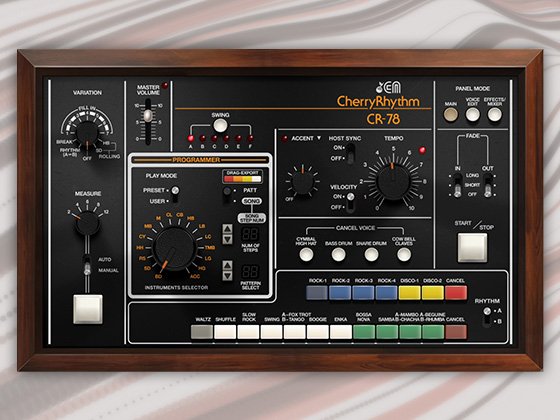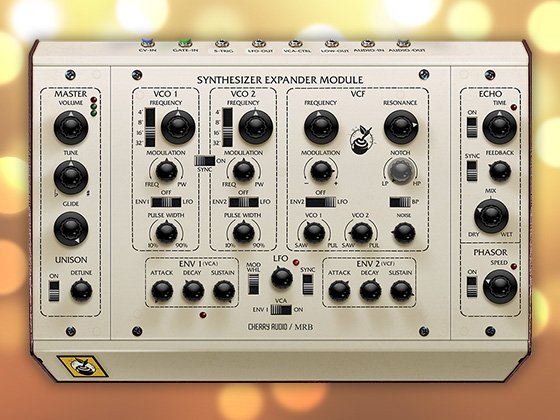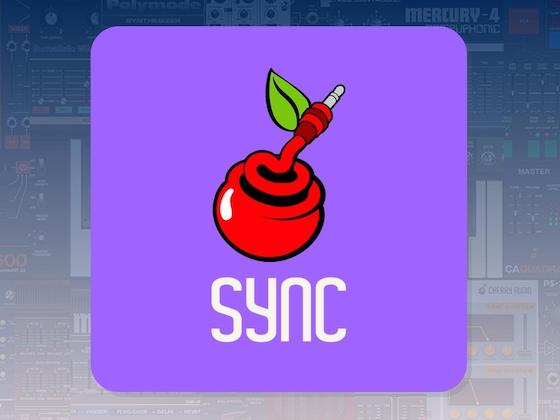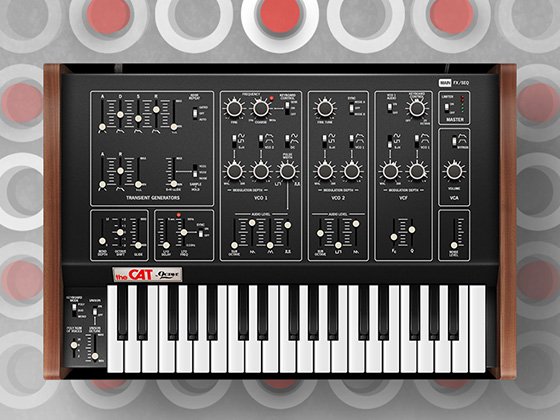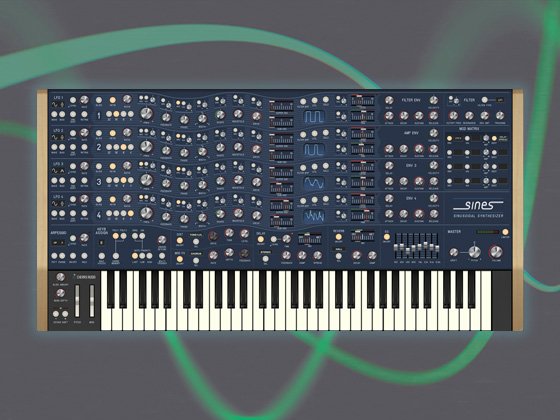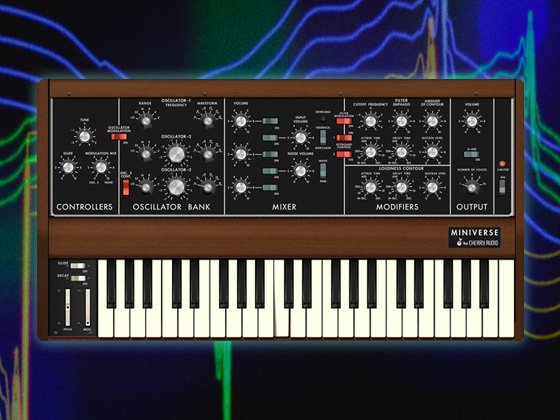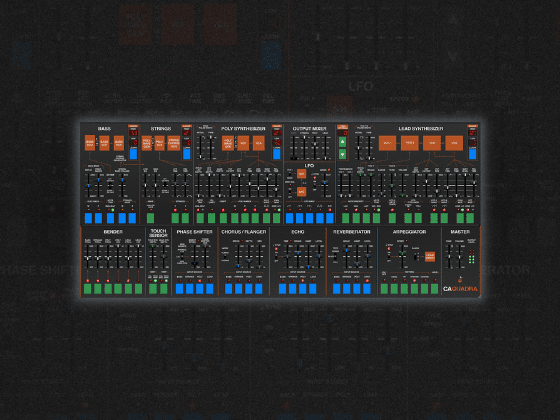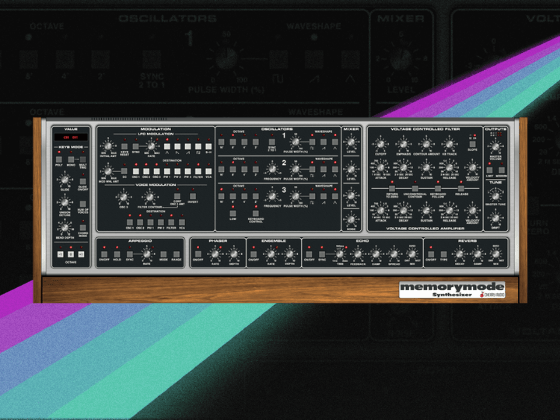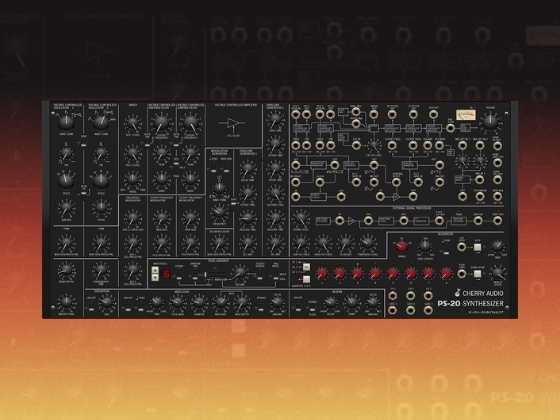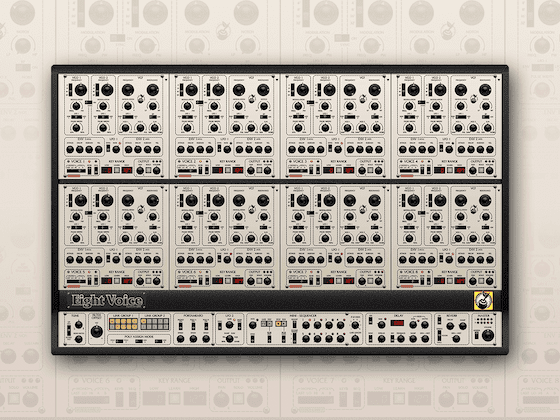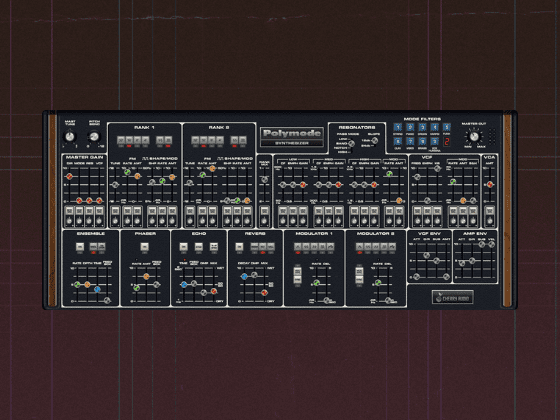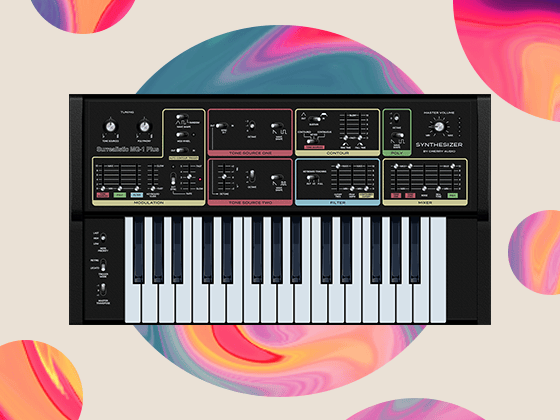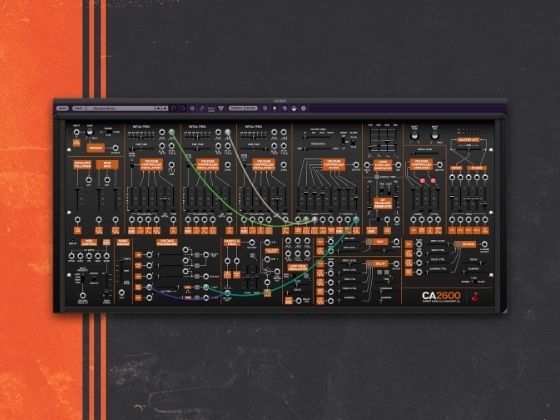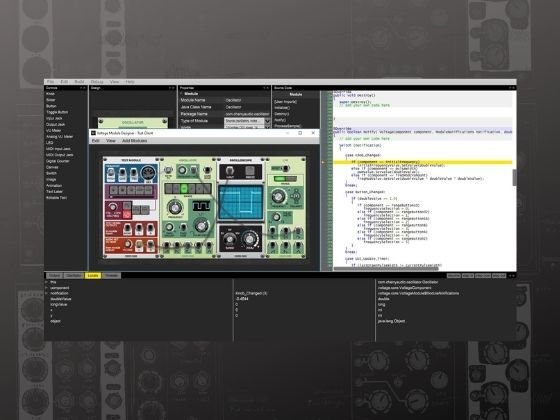Eight track Euclidean rhythm algorithm based sequencer.
1) Clock: The sequencer can be activated either by toggling the on button or by sending a high gate signal to the input jack below the button. If the jack is connected, the sequencer is active as long as the supplied gate is high, and turned off when it is low.
If the rst/start button is toggled green, the track positions and the reset counter will be reset when the sequencer is activated.
The sequencer has an internal clock, which will emit 16th notes based on the tempo set by the tempo button. An external clock will take over if attached to the in jack. Swing can be applied to the internal or external clock by turning the swing knob. The out jack can be used to pass on the clock to other modules.
2) Reset: The sequencer tracks can be reset by sending a gate signal to the in jack, or by clicking the button.
3) Reset counter: Will reset the sequencer track position when max value is reached, and can be used to periodically reset the tracks, if the rst selection button is turned on for that track. The reset step mechanism is incremented at each clock from the Clock section. The maximum value before reset is 64. When the reset counter resets the tracks internally, it also sends a gate via the out jack, thus allowing for other modules to listen to the reset signal. Reset jack will reset the reset counter when a gate signal is sent to it, allowing the reset counter to be synced externally, for instance to a host. The reset counter can be turned on or off by toggling the top left button.
4) Pattern: A pattern is a sequencer state comprised of all settings for the tracks and the Mono group (explained below). Eight different patterns can be saved by clicking the corresponding save button and can be recalled by clicking the fetch button. To load a pattern one can also use the sel mod knob, or attach a cv signal to sel mod input jack. By adjusting the sel mod knob and the attenuverter knob the patterns chosen by the input signal can be limited. When a pattern is loaded a gate signal is sent from the out gate jack, and the corresponding patterns cv setting (chosen by out cv knob) is sent from the out cv jack. This is convenient if one wishes to control some external setting depending on the selected pattern.
5) Probability: The chance for a track triggering its output can be be reduced by turning the amt knob to a value less then 100%. For a track to be affected by this it needs to have its prob toggle button set to green. The percentage amount can be modulated via the in jack and attenuverted with the att knob.
6) Mono group: This function will assure that only one note in tracks assigned to the same group is played at a time. When more than one track in a mono group triggers for a clock signal, the top most track among these tracks has the priority. Mono groups can be turned on/off using the top left button in the section.
There are two mono groups, and tracks are assigned to a group with the slider in the 0 1 2 column (see Tracks section below).
When a track in the mono group triggers, its gate and cv values are also sent out via the gate and cv jacks of that mono group. Glide can be applied using the glide knob and the glide can be modulated via the glide mod jack, in conjunction with the attenuversion knob.
7) Tracks: The tracks have the following settings: on = activates/deactivates and hides/shows the track. so = solo the track. xtclk = external clock directly to the track. steps = total number of steps for the track. Maximum number of steps for a track is 32. beats = the beats to be distributed among the steps. offset = the offset used to move the beats. rst = activates/deactivates the reset counter mechanism for the track. f b f/b r = the move direction of the track sequence, f = forward, b = backward, f/b = forward then backward, r = random. 0 1 2 = mono group assignment for the track, 0 = none, 1 = mono group 1, 2 = mono group 2. prob = activates/deactivates the probability function for the track. gate = the length of the gate signal sent out via the adjacent jack when the track is triggering. cv = the cv the track sends via the last jack when it triggers.
ScyllaYoshiba
Nov 1, 25
My daily driver
uwu
pls add a interface for manual sequence editing. a switch shows alternate ( current version ) or manual mode. like: two gaps, 3 dots, 4 gaps, 3 dots.
and maby an editor for cv pitch like the one from cherry audio has




























